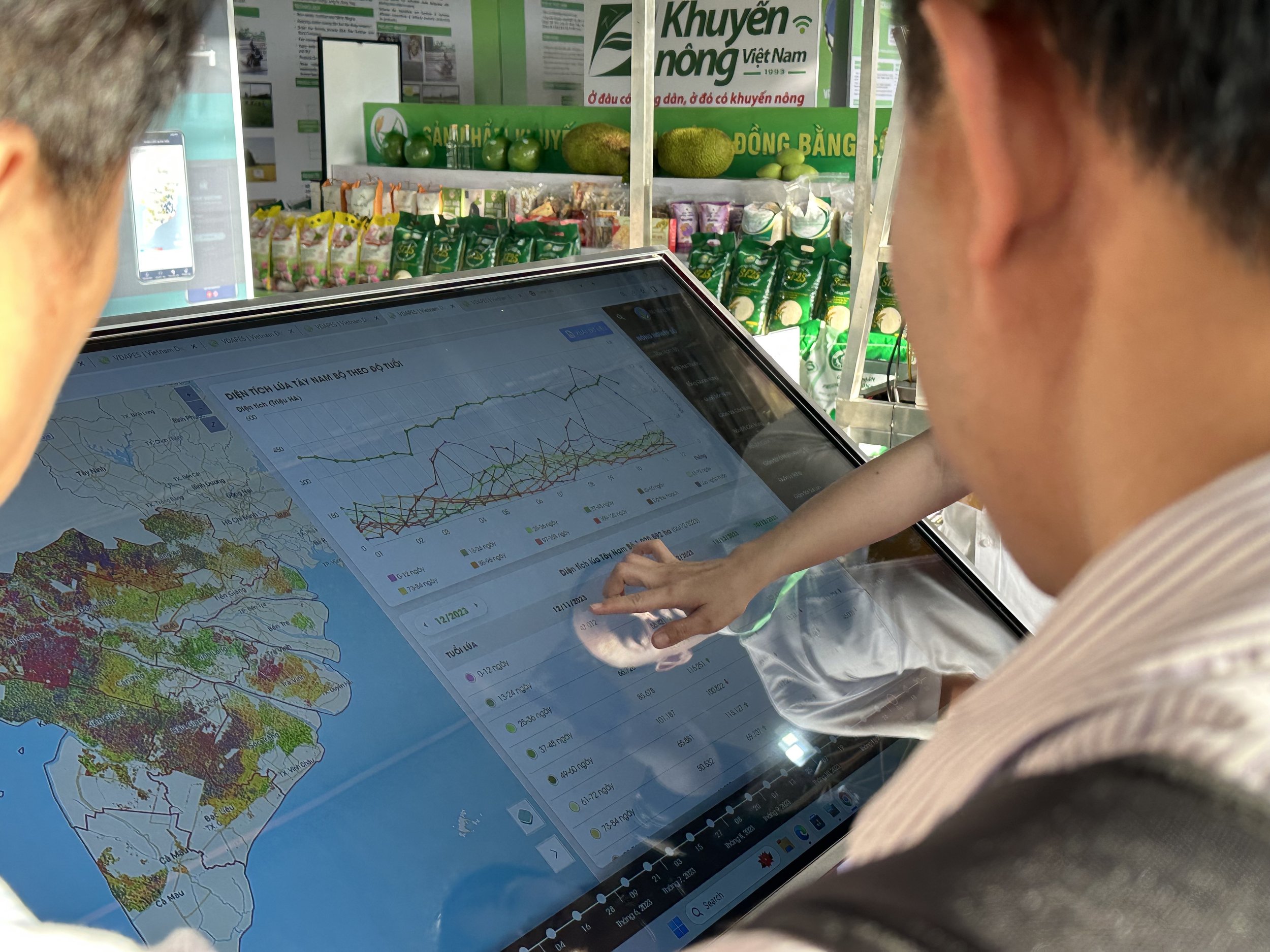RICE International Festival 2023, Peace Square, from December 12-14, 2023.
Over the past two years, RYNAN Technologies has been a trusted partner of the Vietnam Department of Agriculture and Rural Development, leading the way in implementing comprehensive agricultural digital transformation solutions across multiple provinces in the Mekong Delta region. Our innovative devices, such as the Insect Monitoring System and Smart Water Management Network, have played a pivotal role in digitizing and streamlining the entire process of managing agricultural activities for government agencies. This includes:
Efficiently managing regional pest situations and promoting the shift from chemical to biological pest control methods.
Digitizing rice farming practices through automated and remote-controlled IoT devices, benefiting standard farming projects across various crops.
Enhancing logistics for agricultural products, facilitating the transport of freshly harvested crops to areas in need.
Farmers stand as the primary and long-term beneficiaries of this collaborative initiative. Through our developed ecosystem of smart devices and mobile applications, they can:
Efficiently manage their farms, reducing labor hardships.
Increase crop value and expedite the selling verification process with comprehensive traceability data, utilizing a digital cultivation diary.
Access open-source water, weather, and soil information for their farming areas through satellite and AI-powered maps, enabling more data-driven cultivation planning.
As a result of significant projects and positive transformations in the Mekong Delta agricultural landscape, RYNAN Technologies has been invited to the RICE International Festival 2023 to showcase our innovative milestones to potential international clients. This positions Vietnam as a leading agricultural nation globally, demonstrating not only high-quality products but also the ability to meet the world's demand for improved transparency in product origin and sustainable, data-driven cultivation practices beneficial to consumers, farmers, and the environment.

